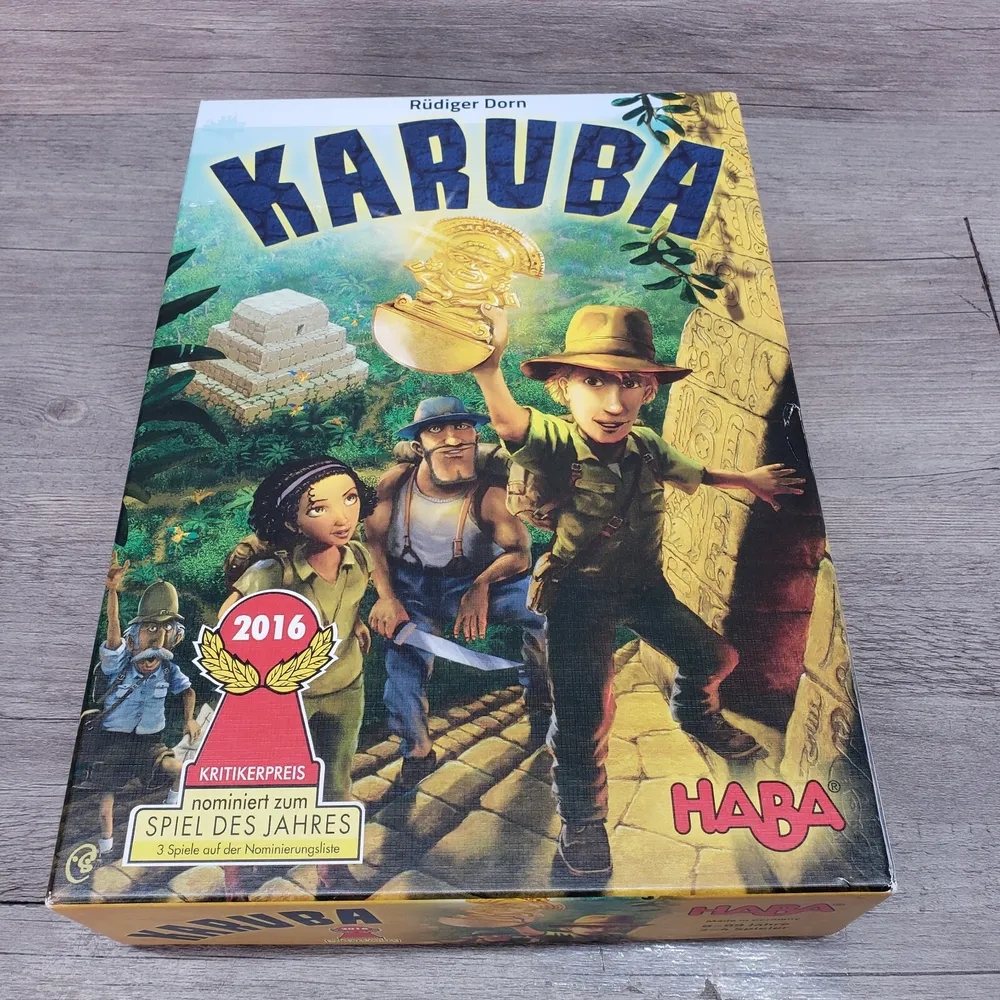Karuba (2015)
Karuba
Karuba is a tile-laying race game designed by Rudiger Dorn and published by HABA in 2015. The game is set in the jungle of the fictional island of Karuba, where players represent a team of adventurers searching for hidden treasures.
Why is Karuba Popular?
Karuba is popular for several reasons:
– Accessibility: The game is easy to learn and understand, making it suitable for players of all ages and experience levels.
– Lack of downtime: Players are constantly involved in the game, as they simultaneously place tiles and move their explorers.
– Spatial puzzle: The game challenges players to strategically place tiles and move their explorers through the jungle to discover treasures and reach hidden temples.
– Awards and recognition: Karuba was nominated for the 2016 Spiel Des Jahres award, a prestigious German board game award.
Game Components of Karuba
How To Setup Karuba
To set up Karuba, each player receives a rectangular game board featuring a 5×6 grid of spaces, with the beach along two sides and the jungle bordering the other two. Players cooperatively decide the initial placements of the four adventurers on the beach and the four temples in the jungle, ensuring that each adventurer and its corresponding temple are at least three spaces apart. A supply of gems and gold nuggets is placed near the center of the table. The 36 numbered jungle tiles are sorted numerically for each player, although this step can be time-consuming in the physical version.
Gameplay Mechanics and Game Objective
Player Experience
Karuba offers a unique blend of solo route-planning and optimization within a multiplayer setting. While players do not directly interact with each other’s boards, the simultaneous placement of tiles adds a competitive element. The game is praised for its accessibility and lack of downtime, making it a “nice spatial puzzle” with a charming theme.
Pros
Cons
Personal Thoughts on Karuba
Karuba is an excellent choice for families and casual gamers who enjoy light to moderate complexity games. It is particularly suited for those who appreciate tile-laying mechanics and are looking for a game that combines strategy with a fun, competitive edge. While it may not offer the depth sought by experienced gamers, it is a great addition to any collection due to its unique gameplay and high replay value.
We are supported by our audience. When you purchase through links on our site, we may earn an affiliate commission, at no extra cost for you. Learn more.

